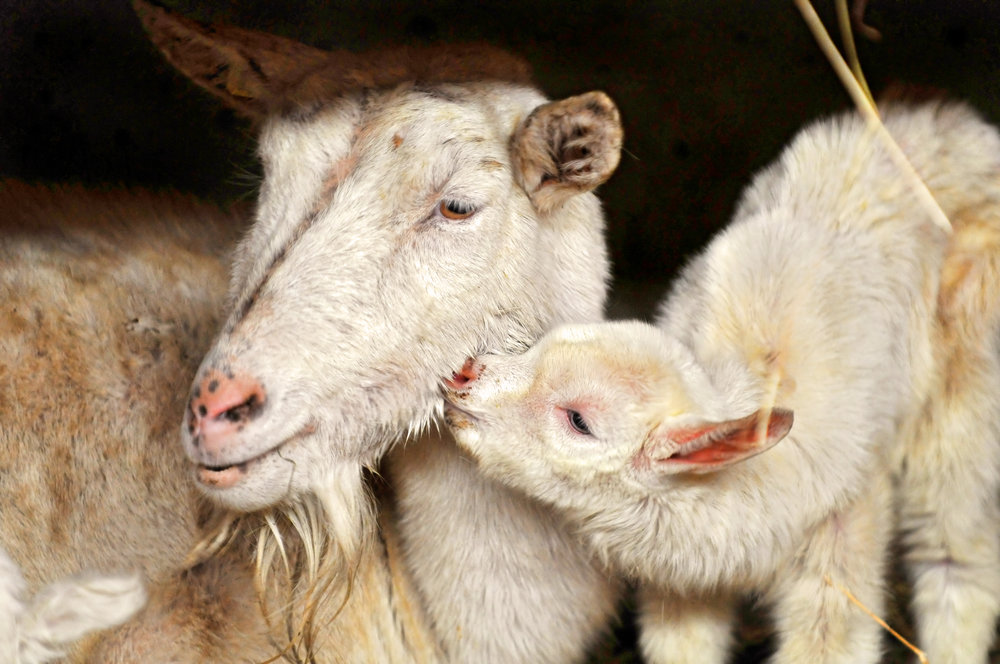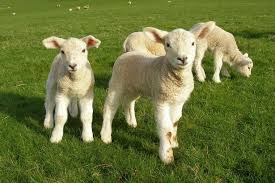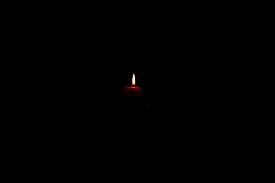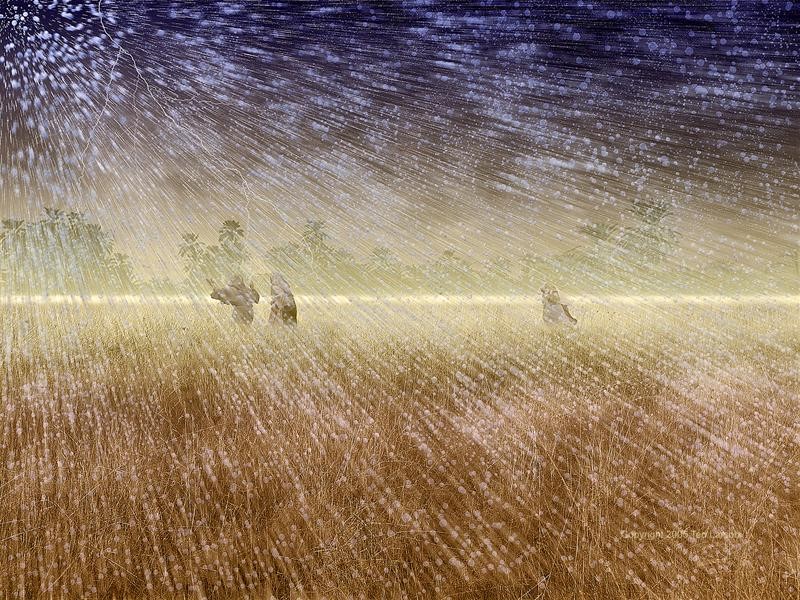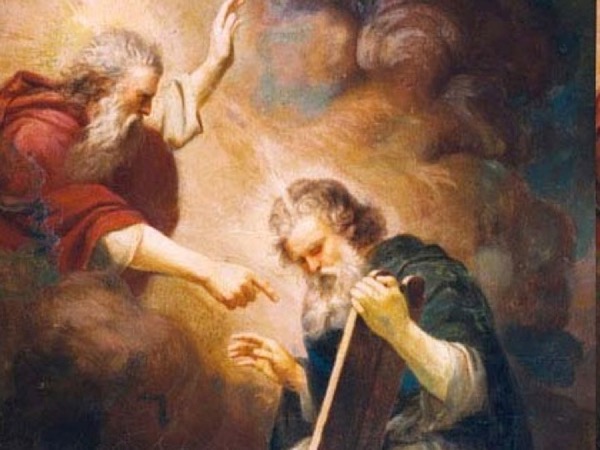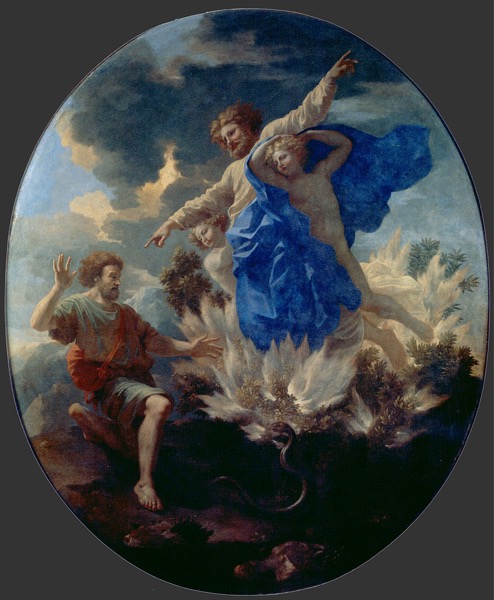ALIVE: Chapter 75, The Death of Moses
/To whom much is given, much is required. Most people would not even notice the difference between saying to the rock, ‘Bring forth water!’ and saying, ‘Shall we bring water out of this rock for you rebels?’
These fateful words of great Moses flashed through Christ’s mind when He said, “Therefore, you are to be perfect as your Heavenly Father is perfect.” Matthew 5:48
Perambula was shocked. “My Lord, wise and wonderful, for such a small infraction, your servant Moses who has travailed with your stiff-necked people for so many years and through rivers and drought, and now you sentence this old man to forty years of marching through the wilderness without ever entering the Promise Land. How can this be my Lord?!”
God flashed an angry look at Perambula who shriveled into a droplet of mist.
Time. The revolution of the earth around the sun. Night and day. Around and around we go. Asleep and awake and asleep again in a dizzying cycle from which we would eventually collapse with nausea if not for the life force that propels us forward to create the illusion of a spiral. Infancy to decrepitude, birth to death, dust to dust, circles of life filled with drama like a heap of pennies.
Humanity fills pristine air with good and evil, humility and hubris, peace and war, anger and tears shooting out from hearts like sprays of arrows. Living coins so dense with life that they pretend to exist outside of time. Humble time hides itself in disgust at loud brash and egotistical drama. Then it stealthily grabs each person one by one; the last breath of air, the very last heartbeat; dead. Forever. To exist as spirit in timelessness.
One day Aaron died.
The brother, the mouthpiece of Moses, stopped breathing air. Two strong men planted his body deep in the earth and marked the hidden place of it with a stone. After decades of walking He reached Sheol instead of the Promise Land and discovered an unexpected world. The waiting room of the dead. Like the millions before him Aaron’s life landed in extreme foreign territory no longer to speak; no longer to walk. No need for either milk or honey. What Aaron experienced is a secret. His son Eleazar replaced him on top of the earth as chief priest. Brother Moses wept.
Twenty-three generations after God had promised Abraham that his family would be nomads no more, in a land rich with cows and busy bumble bees, and four decades after holy Passover night, when the angel of death passed over doorways painted with the blood of lambs to barge through naked doors to grab first-born sons. When Pharaoh’s grief loosened his tight fisted grip on enslaved Israel the twelve tribes finally reached Moab, the gateway to the Promise Land. Exactly forty years after they insulted God and themselves with fear, Israel returned from their futile forty year round trip.
Those men and women died who infected each other with the disease of cynicism, who had forgotten the many miracles God performed for them for the sole purpose of revealing Himself to them, who were so bereft of faith that they were more afraid of men than of their Creator and Judge.
Joshua and Caleb remained alive to see the land again and with God’s help to take it after forty-years of walking while waiting for the unbelievers to die, which they did, one by one. Off to timeless Sheol.
At Moab Moses knew that the time had come for him to die too. To be buried outside the Promise Land. Humble Moses accepted his punishment graciously. Like the father of this nation he was, before leaving the sons of Jacob Moses reminded them of the commandments and the law, and he blessed each tribe with instructions and blessings, leaving behind him an outpouring of holy wisdom in one last effort to transform the nation of Abraham, Isaac, and Jacob into children of God.
Finally, Moses gathered Israel and said loudly for everyone to hear without stutter, “I am now 120 years old. I am no longer able to get about and the Lord has told me that I shall not cross the Jordan. The Lord Himself will cross over before you. He will destroy the nations before you, and you shall displace them. Joshua will also cross over before you, as the Lord promised. Be strong and bold; have no fear or dread of them, because it is the Lord your God who goes with you; He will not fail or forsake you.”
Then Moses summoned Joshua and said to him in the sight of all Israel: “Be strong and bold, for you are the one who will go with this people into the land that the Lord has sworn to their ancestors to give them; and you will put them in possession of it. It is the Lord who goes before you: He will be with you; He will not fail or forsake you. Do not fear, or be dismayed.
Take to heart all the words that I am giving in witness against you today; give them as a command to your children, so that they may diligently observe all the words of this law. This is no trifling matter for you, but rather your very life; through obedience to the law you may live long in the land that you are crossing over the Jordan to possess.”
He paused and in his heart Moses heard the Lord speak to him with love and compassion, “Ascend the mountain of the Abarim, Mount Nebo; across from Jericho, and behold the land of Canaan which I am giving to the Israelites for a possession; you shall die on this mountain that you shall ascend and shall be gathered to your kin, as your brother died on Mount Hor and was gathered to his kin; because both of you broke faith with Me among the Israelites at the waters of Meribah-kadesh in the wilderness of Zin by failing to maintain My holiness among the Israelites. Although you may view the land from a distance, you shall not enter it-the land that I am giving to the Israelites.”
The people waited patiently and with great respect for Moses to come out of his trance.
When he did, Moses gave his final blessing to them (Deuteronomy 33) and then walked away from them alone. The crowd watched him go. No one followed him as old Moses, slowly and with a limp walked and walked away leaning on his staff. The giant that had been Moses faded in their sight; disappearing into the horizon on the plains of Moab.
Finally he reached Mount Nebo which is opposite Jericho, and the old man looked up, took a deep breath and began his last hike. Moses’ life flashed before him as he climbed one careful step at a time. Memories of the many hikes up Mt. Sinai crossed his mind. Slowly, breathing hard, stopping often to rest Moses felt thoroughly immersed in life. The life of his body, the breath of it, the tired muscles of it, the thirst and hunger of it. He drank in giant gulps of the feeling of the air passing over his sweat drenched wrinkled skin. His eyes like twin gluttons wanted to see and study the colors, the textures of every rock and tree and leaf, every insect that surrounded him on this last climb. Moses filled himself with the matter of life. No longer was anyone dependent on him. No one needed his judgment or his defense. He was free. He looked forward to being gathered to his people, Mariam and Aaron for he missed them terribly these last months and years. Perambula and Gracefeld invisibly helped the old man climb, protecting him from falling, patiently guiding elder Moses up the mountain via the shortest path lest he faint or lose his way.
As the sun was about to set, in the dim dusk of evening Moses finally reached the summit. Perambula and Gracefeld felt great relief as the journey was much more difficult for the angels than for the old man they were helping. During all the hours of climbing Moses thought he would never reach the summit, and that he never wanted to for he was afraid of what he imagined to be the dark emptiness of death.
At the summit the Lord spoke to Moses again. He showed him the whole land. Moses gazed around him. He saw the fields beneath him, fields he would never walk through, and he beheld the mountains in the distance and the deep purple sky overhead. Gradually after taking in the site of the Promise Land, the land his ancestors yearned to see, Moses gave up his spirit. His body went limp and he breathed no more. The baby in the basket that reminded Perambula of Noah being saved by the ark died after 120 years.
After experiencing over a million sunrises Moses plunged into the depths of Sheol where Aaron and Miriam and their parents and their aunts and uncles greeted him. They walked him into his new existence.
Never since, has there arisen a prophet in Israel like Moses, whom the Lord knew face to face. He was unequaled for all the signs and wonders that the Lord sent him to perform in the land of Egypt and in the sight of all Israel.
No man alive saw and knew the Creator of heaven and earth as did Moses. No one.
The baby in the basket escaped death to become the son of Pharaoh and a servant of God. Moses was the most ALIVE man that ever lived, until Christmas Day.




